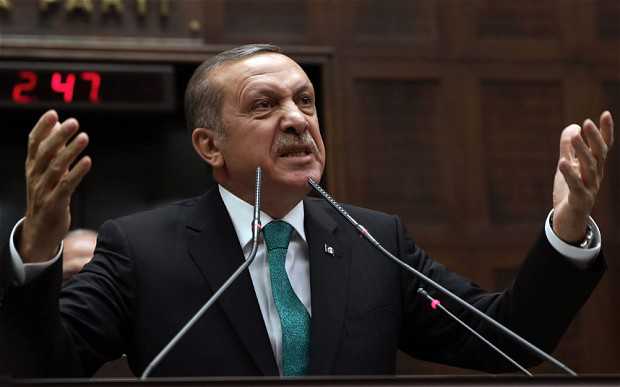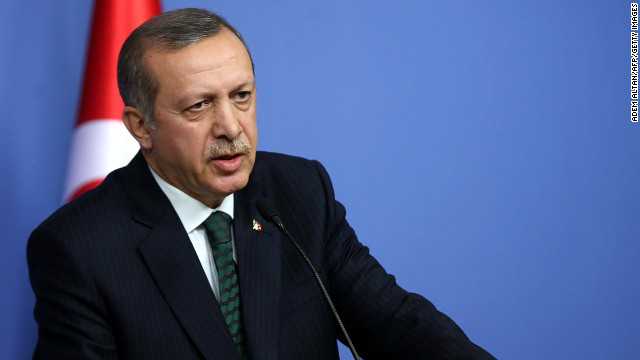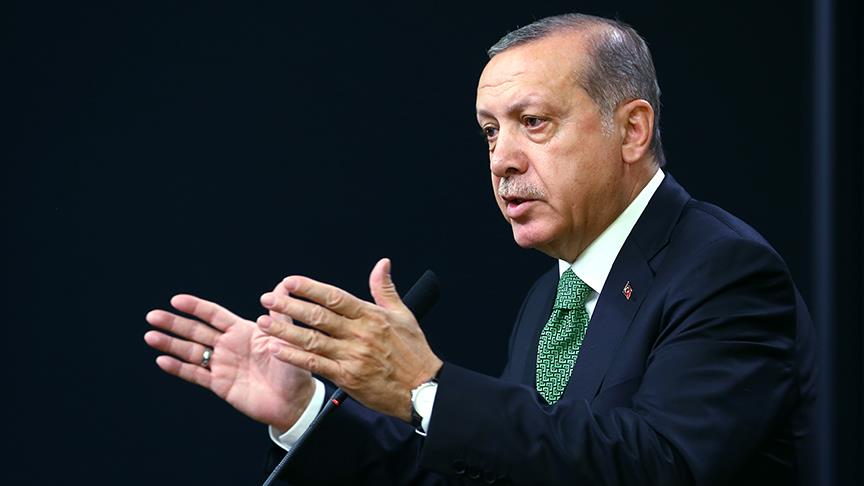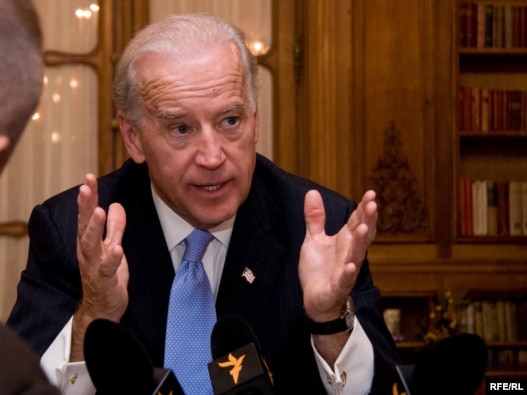|
|||||||||||||||||
Tag: Turkey-Armenia
-

Turkey Reveals True Intentions in Protocols Game
-

Turkey to recompense $1.1 billion for low-priced Azeri gas
TURKISH-ARMENIAN PROTOCOLS ARE AT WORK
[ 28 Oct 2009 15:18 ]
Trend News AgencyBaku. Rashad Suleymanov – APA-ECONOMICS. Turkey will pay the difference between the old price it has paid for Azeri gas since April 2008 after the gas agreement expired and the new price to be agreed on with Azerbaijan, said Turkish Energy Minister Taner Yilldiz.
According to him, Turkey has continued to import natural gas from Azerbaijan although the gas supply agreement expired in April 2008.
“Today we no longer buy low-priced gas from Azerbaijan. In accordance with the new price to be agreed upon, we will pay the difference”, he said, adding that Turkey is continuing talks with Azerbaijan’s SOCAR on natural gas, and hopes to reach an agreement soon.
Turkish media report that Turkey will have to pay at least $1.1 billion to Azerbaijan as price difference compensation if the new gas price is around $250 per 1,000 cubic meters, compared to the current price of $120. .
-

Turkey’s Prime Minister Troubled by Armenia’s Diaspora
By Appo Jabarian
Executive Publisher / Managing Editor
USA Armenian Life MagazineDuring a recent interview with the Wall Street Journal, Turkey’s Prime Minister Recep Tayyip Erdogan went on a temper tantrum against Diaspora Armenians.When asked about the Protocols, Armenia, and Artsakh (Nagorno Karabagh), Mr. Erdogan said: “I believe when President Sargsyan was on an international visit, he was faced by a reaction from the Armenian Diaspora. So what he does in face of the reaction of the Diaspora is very important. If he can stand firm, and if it is the government of Armenia and not the Armenian Diaspora that is determining policy in Armenia, then I think that we can move forward. As far as we’re concerned there is no problem. But it is up to the government in Armenia.
Next, he added: “What is important and I would like to underline this, because this is perhaps the most important point is that Armenia should not allow its policies to be taken hostage by the Armenian Diaspora. It should be up to the government to carry out its policies.”
It’s all too clear that Mr. Erdogan wants to divide and conquer. The Turkish Prime Minister is working overtime to create a wedge between Armenia and its 8-million strong Diaspora.
Will the denialist Turkish leader succeed in stripping Armenia from its number one social, economic, and political ally, the Armenian Diaspora?
It was because of a strong opposition by Armenians both in the homeland and the Diaspora to the unfair terms of the Protocols, including Ankara’s demand that Armenia give up its pursuit of Artsakh’s independence, Turkey back-paddled and started to distance itself from the Artsakh issue, separating it from the normalization of diplomatic ties with Armenia.
But that should not misguide the Armenians into thinking that Turkey is doing Armenia and Armenians a favor. They are entitled to carry out the Destalinization/Deturkification process of the Armenian territories. Artsakh is the first of many steps leading to the ultimate reunification of Armenia through the establishment of Federal Republics of Armenia.
In 1921, the following Eastern Armenian provinces of Artsakh (1), Nakhitchevan (1), Gandzak (1), Javakhq (2), Ardahan (3), Kars (3), and Igdir (3) were stalinized under the infamous Soviet dictator Josef Stalin. They were carved out of Armenia of 1918 and were arbitrarily “gifted” respectively to the newly Sovietized Azerbaijan (1), Georgia (2), and Kemalist Turkey (3).
Now that the infamous Protocols are signed, Armenians in Armenia and around the world have no choice but to derail its ratification in the National Assembly. Armenia’s capitulation to unfair Turkish demands shall not be allowed to linger. Turkey should be stopped and Armenia should be saved. Otherwise, Mr. Erdogan’s obvious anxiety over the Diaspora Armenians activism will definitely multiply.
He should take no solace from the temporary support of Secretary of State Hillary Clinton, acting as a proxy for the multi-national oil/gas conglomerates.
Secretary Clinton: The Oil Lady
During ’08 U.S. presidential primary election season, then candidate Hillary Clinton used to refer to then President George W. Bush and Vice-President Dick Cheney as “The oilmen.”
So now, since she is eagerly catering to energy multi-national corporations’ thirst for faster profits at the expense of Armenia and Armenians, she must be called “The Oil Lady.”
On October 14, The Washington Post reported that Secretary Clinton “executed some deft diplomacy last weekend as the leaders of Turkey and Armenia signed a potentially historic deal to establish normal diplomatic relations and reopen their borders. We say ‘potentially’ because there are some big obstacles to implementing the accord, which we’ll come back to. … The rapprochement between these two nations matters to the United States for a number of reasons. It could help stabilize the volatile Caucasus region, open the way for new corridors for the export of gas and oil to the West, ease Russia’s political domination of Armenia, and remove a major irritant from U.S. relations with Turkey. The Obama administration worked diligently to promote the accord. … President Obama played a part by sidestepping a campaign promise to formally recognize the mass killing of Armenians by Turks during World War I as ‘genocide.’”
The Moscow, Europe and U.S.-based energy giants have set their eyes on the construction of their oil pipeline linking the oil and gas fields of Central Asia to Europe via Azerbaijan, Armenia, and Turkey. But why pursue it at dire consequences for Armenia and Diaspora Armenians? Why allow Turkey to exploit the opportunity by forcing Armenia to give up its demands of lands in Turkish-occupied Western Armenia; Reparations for the Turkish-executed Armenian genocide?
By abusing the political opportunity, Turkey has poured more gasoline on the fire, igniting worldwide Armenian condemnation. But who is to blame for the fact that Turkey is deeply troubled by Armenia’s Diaspora? Turkey!
-

Armenians horrified by treaty with Turkey
Genocide forgotten:
A new trade deal is set to gloss over the
murder of 1.5 million peopleBy Robert Fisk
www.independent.co.ukIn the autumn of 1915, an Austrian engineer called Litzmayer, who was helping build the Constantinople-Baghdad railway, saw what he thought was a large Turkish army heading for Mesopotamia. But as the crowd came closer, he realised it was a huge caravan of women, moving forward under the supervision of soldiers.
The 40,000 or so women were all Armenians, separated from their men – most of whom had already had their throats cut by Turkish gendarmerie – and deported on a genocidal death march during which up to 1.5 million Armenians died.
Subjected to constant rape and beatings, some had already swallowed poison on their way from their homes in Erzerum, Serena, Sivas, Bitlis and other cities in Turkish western Armenia. “Some of them,” Bishop Grigoris Balakian, one of Litzmayer’s contemporaries, recorded, “had been driven to such a state that they were mere skeletons enveloped in rags, with skin that had turned leathery, burned from the sun, cold, and wind. Many pregnant women, having become numb, had left their newborns on the side of the road as a protest against mankind and God.” Every year, new evidence emerges about this mass ethnic cleansing, the first holocaust of the last century; and every year, Turkey denies that it ever committed genocide. Yet on Saturday – to the horror of millions of descendants of Armenian survivors – the President of Armenia, Serg Sarkissian, plans to agree to a protocol with Turkey to re-open diplomatic relations, which should allow for new trade concessions and oil interests. And he proposes to do this without honouring his most important promise to Armenians abroad – to demand that Turkey admit it carried out the Armenian genocide in 1915.
In Beirut yesterday, outside Mr Sarkissian’s hotel, thousands of Armenians protested against this trade-for-denial treaty. “We will not forget,” their banners read. “Armenian history is not for sale.” They called the President a traitor. “Why should our million and a half martyrs be put up for sale?” one of them asked. “And what about our Armenian lands in Turkey, the homes our grandparents left behind? Sarkissian is selling them too.”
The sad truth is that the 5.7 million Armenian diaspora, scattered across Russia, the US, France, Lebanon and many other countries, are the descendants of the western Armenians who bore the brunt of Turkish Ottoman brutality in 1915.
Tiny, landlocked, modern-day Armenia – its population a mere 3.2 million, living in what was once called eastern Armenia – is poor, flaunts a dubious version of democracy and is deeply corrupt. It relies on remittances from its wealthier cousins overseas; hence Mr Sarkissian’s hopeless mission to New York, Los Angeles, Paris, Beirut and Rostov-on-Don to persuade them to support the treaty, to be signed by the Armenian and Turkish Foreign Ministers in Switzerland.
The Turks have also been trumpeting a possible settlement to the territory of Nagorno-Karabagh, part of historic Armenia seized from Azerbaijan by Armenian militias almost two decades ago – not without a little ethnic cleansing by Armenians, it should be added. But it is the refusal of the Yerevan government to make Turkey’s acknowledgement of the genocide a condition of talks that has infuriated the diaspora.
“The Armenian government is trying to sweeten the taste for us by suggesting that Turkish and Armenian historians sit down to decide what happened in 1915,” one of the Armenians protesting in Beirut said.
“But would the Israelis maintain diplomatic relations if the German government suddenly called the Jewish Holocaust into question and suggested it all be mulled over by historians?”
Betrayal has always been in the air. Barack Obama was the third successive US President to promise Armenian electors that he would acknowledge the genocide if he won office – and then to betray them, once elected, by refusing even to use the word. Despite thunderous denunciations in the aftermath of the Armenian genocide by Lloyd George and Churchill – the first British politician to call it a holocaust – the Foreign Office also now meekly claims that the “details” of the 1915 massacres are still in question. Yet still the evidence comes in, even from this newspaper’s readers. In a letter to me, an Australian, Robert Davidson, said his grandfather, John “Jock” Davidson, a First World War veteran of the Australian Light Horse, had witnessed the Armenian genocide: “He wrote of the hundreds of Armenian carcasses outside the walls of Homs. They were men, women and children and were all naked and had been left to rot or be devoured by dogs.
“The Australian Light Horsemen were appalled at the brutality done to these people. In another instance his company came upon an Armenian woman and two children in skeletal condition. She signed to them that the Turks had cut the throats of her husband and two elder children.”
In his new book on Bishop Balakian, Armenian Golgotha, the historian Peter Balakian (the bishop’s great-nephew) records how British soldiers who had surrendered to the Turks at Kut al-Amara in present-day Iraq and were sent on their own death march north – of 13,000 British and Indian soldiers, only 1,600 would survive – had spoken of frightful scenes of Armenian carnage near Deir ez-Zour, not far from Homs in Syria. “In those vast deserts,” the Bishop said, “they had come upon piles of human bones, crushed skulls, and skeletons stretched out everywhere, and heaps of skeletons of murdered children.”
When the foreign ministers sit down to sign their protocol in Switzerland on Saturday, they must hope that blood does not run out of their pens. -

Biden Sees ‘More Opportunity Than Danger’ In Caucasus
 Czech Republic / United States – U.S. Vice President Joe Biden in an interview with RFE/RL in Prague, 23Oct200926.10.2009Abubakar Siddique, Brian Whitmore
Czech Republic / United States – U.S. Vice President Joe Biden in an interview with RFE/RL in Prague, 23Oct200926.10.2009Abubakar Siddique, Brian WhitmoreU.S. Vice President Joe Biden has struck an upbeat tone regarding the South Caucasus region, saying that Turkey’s recent rapprochement with longtime foe Armenia and other developments in the volatile region are “fraught with more opportunity than danger.”
In a wide-ranging interview with RFE/RL on Friday, Biden pointed to the recently signed Turkish-Armenian agreements and progress toward a settlement between Armenia and Azerbaijan on Nagorno-Karabakh as causes for optimism.“What’s happening, from my perspective, is that people in the [South Caucasus] region are beginning to understand that their self-interest lies in greater cooperation now. Not out of love and affection, but out of necessity and opportunity,” he said.
“This is going to be a very difficult period,” continued the vice president. “It is fraught with danger, but I would argue it’s fraught with more opportunity than danger. And I see more positive things happening than negative things happening.”
“I think everyone’s seized with the consequence of not making progress in that region of the world. Therefore, because so many are focused on it, I’m more hopeful than I am pessimistic,” he said.
Speaking to RFE/RL in Prague at the conclusion of a three-day visit to Eastern European capitals, Biden insisted that Russia could contribute to regional stability and integration despite consolidating its dominance over Georgia’s breakaway regions of Abkhazia and South Ossetia.
“I look at Russia with eyes wide open, as a realist,” he explained. “And my expectation is that Russia will decide over the next decade that its interest lies in more integration rather than what some in Russia seem to be thinking may be a different course. So we just have to keep the dialogue going.”
https://www.azatutyun.am/a/1861268.html -

Armenia Thanks U.S. For Help In Normalizing Turkey Relations
 Armenian President Serzh Sarkisian and Tina Kaidanow, U.S. deputy assistant secretary of state for European and Eurasian affairs, meet in Yerevan.October 21, 2009YEREVAN — Armenia’s President Serzh Sarkisian has told visiting U.S. Assistant Secretary of State for European and Eurasian Affairs Tina Kaidanow expressed gratitude on behalf of the Armenian nation to the U.S. leadership for its contribution to the normalization of relations with Turkey, RFE/RL’s Armenian Service reports.
Armenian President Serzh Sarkisian and Tina Kaidanow, U.S. deputy assistant secretary of state for European and Eurasian affairs, meet in Yerevan.October 21, 2009YEREVAN — Armenia’s President Serzh Sarkisian has told visiting U.S. Assistant Secretary of State for European and Eurasian Affairs Tina Kaidanow expressed gratitude on behalf of the Armenian nation to the U.S. leadership for its contribution to the normalization of relations with Turkey, RFE/RL’s Armenian Service reports.Kaidanow held talks with Sarkisian and Foreign Minister Eduard Nalbandian in Yerevan this week.
Sarkisian told Kaidanow that normalization of relations between Turkey and Armenia is very important for Yerevan, and to stability in the region.
Kaidanow said the United States is pleased with the progress in Turkish-Armenian relations, adding that relations should be established in reasonable terms and without preconditions.
Kaidanow stressed the importance of democratic reforms in Armenia, especially paying attention to the recently endorsed amnesty, which, as she said, was a very important step toward further democratization.
In a separate meeting with Nalbandian, Kaidanow discussed the Nagorno-Karabakh issue.
https://www.rferl.org/a/Armenia_Thanks_US_For_Help_In_Normalizing_Turkey_Relations/1857541.html
